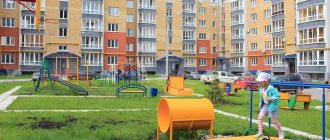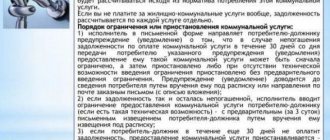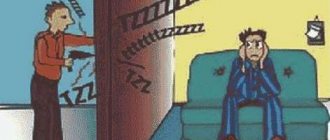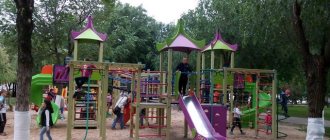According to the rules, any desire of a summer resident or gardener to raise rabbits or birds on his property requires the consent of officials. Their “good” will not be needed if the person’s neighbors are calm and they are not outraged by the crowing of a rooster at dawn. Otherwise, the commission, or worse, the court, will recognize the breeding of geese or chickens as a violation with all the ensuing consequences for the owner. Now, when the economic situation has become more difficult for many people, farming on their own acres is becoming vitally necessary.
But local courts, as it turns out, make diametrically different decisions on similar issues in different regions. So the decision of the Constitutional Court concerns not only the person who did not agree with the established practice and reached the Constitutional Court. And there he asked to check the law, with which he did not agree. Both the highest court of the country and its judges, having studied the issue, said that the person posed the problem correctly.
For the decision of the Constitutional Court, which Rossiyskaya Gazeta published on Wednesday, citizens should thank Chita resident Margarita Antsinova. It was she who asked to check Article 8.8 of the Code of Administrative Offenses of the Russian Federation. Article 8.8 provides for punishment for using a land plot for purposes other than its intended purpose.
Margarita Antsinova was fined 10 thousand rubles for raising goats, ducks and rabbits on her land, although her plot, like neighboring plots, was intended only for housing construction.
Antsinova was unable to challenge the punishment: the courts referred to the fact that “the choice of any type of permitted use of a land plot must be formalized in the manner prescribed by law, and therefore an actual change by the owner of the permitted types of its use is impossible without notification in the Unified State Register of Real Estate.”
The materials of her court case say that only documentation of the choice of an auxiliary type of use of the land plot, despite the fact that this type is provided for by the territorial zone “Zh-3”, allows the owner to legally exercise the rights provided for by the Town Planning and Land Codes of the Russian Federation.
But Margarita Antsinova herself is confident that on her land “there is a possibility of erecting buildings for keeping livestock and poultry (an auxiliary use). As a result, she has the right to independently choose any type of permitted use, including auxiliary, without additional permits and approval procedures.”
The judges of the Constitutional Court said that the existing law enforcement practice in such cases is ambiguous. And this, in turn, entails uncertainty in the issue of the possibility of bringing the owner to administrative responsibility for using a land plot not for its intended purpose. Interestingly, the authorized representatives of the authorities in the Constitutional Court also disagreed on this issue. Thus, representatives of the chambers of the Federal Assembly insisted that the types of permitted use of the site should be determined based on the provisions of urban planning regulations. On the contrary, the plenipotentiary representative of the President of the Russian Federation said that the right to choose does not replace the owner’s obligation to enter information into the register.
The Constitutional Court decided that Antsinova’s case is subject to review. The federal legislator is instructed to exclude the possibility of double interpretation of the norms of the Code of Administrative Offenses of the Russian Federation. “Until the necessary changes are made to the legislation, owners of land plots cannot be forced to enter any information into the Unified State Register,” the Constitutional Court of the Russian Federation indicated. — In the case when, in addition to the main type of permitted use of the land plots they own, they independently choose an auxiliary type of their permitted use.
Sergey Knyazev, judge of the Constitutional Court of the Russian Federation:
This case is a classic example of legal uncertainty.
The legislator could establish the right of the land user to independently choose an auxiliary type of permitted use of the site.
And provide for his obligation to enter the relevant information into the Unified State Register - or not oblige him to do so.
But having chosen one or the other option, the rules must be formulated so that everyone understands what to do.
If we compare not only land, but also town planning and registration legislation, it is impossible to confidently extract from there the answer to the question of whether it is necessary or not necessary to enter information into the Unified State Register of Real Estate in such a case.
But the law shouldn’t be like that—it shouldn’t put people in a situation of uncertainty. It is most important.
I think that this decision of the Constitutional Court of the Russian Federation is another reminder that there are not and cannot be any trifles in lawmaking. Especially in cases where legal liability is established. And especially now, when work is underway on a new Code of Administrative Offences.
At first glance, keeping a dog is not difficult for its owner.
But this conclusion is reached by those who have not studied this issue in detail. The state establishes norms and patterns of behavior for both the owner and the dog itself.
If you decide to get a dog, or if you have one, study this article in detail.
Law on keeping dogs
Regarding nutrition - regular and stable, availability of drinking water and a place for healthy sleep. It is also not worth keeping the dog on a leash and limiting its movement.
The owner is obliged to ensure cleanliness. Your pet needs to be vaccinated at regular intervals. Especially from rabies, since infected dogs are dangerous to others. If you have problems regarding your dog’s well-being, you should also visit a doctor with your pet. If for some reason the dog dies, then it must be cremated or buried in a special place.
Rules for keeping dogs: law
Usually, animal owners are adequate, but sometimes, due to either an insufficiently developed sense of responsibility, or because of excessive love for the same dogs, they forget about the basic rules of keeping and raising pets, thereby endangering others, and sometimes themselves.
It is for such cases that the idea arose to regulate how many dogs can be kept in an apartment by law and what the owners will face if they violate this rule. But so far the law does not limit the number of dogs. He avoids this issue altogether. However, if animals bother neighbors, and neighbors complain to the relevant authorities, then it is these authorities who decide how many dogs can be kept.
There are several other important rules regarding pet ownership. A complete list of them can be found in the draft law “On keeping dogs in the Russian Federation”
This law imposes certain obligations on the owner; you can receive an administrative fine for the death of an animal due to improper care, for cruel treatment of the animal, or for damage to someone else's property by the animal.
In this case, the owner is obliged not only to cover the damage caused, but also to pay an administrative fine.
The same law states that the corpses of pets are subject to mandatory burial or disposal. Simply throwing the body into the trash is prohibited.
Walking with the dog. Where and how?
The law clearly states how and where to walk dogs. Walking areas must comply with the following rules:
- site area more than 400 sq.m.;
- the site should be located in a remote area from residential buildings and institutions (40 and 25 meters, respectively);
- It is prohibited to walk your pet in areas with a large flow of people.
The law contains regulations regarding the norms of dog behavior. In apartment buildings, a dog does not have the right to wander aimlessly around the entrance without a leash or owner. She must be kept on a short leash. The same requirements apply to adjacent areas of a residential building and playgrounds. Large and dangerous breeds must wear a muzzle at all times during walks for the safety of people around them.
Having released the dog from the leash and removed the muzzle, the owner must be convinced that his dog will not harm others or cause harm to health and life. Puppies under three months of age and decorative breed dogs that do not exceed 25 cm at the withers are allowed to move without a leash or muzzle. If the dog bites someone, or an accident occurs due to the fault and participation of the dog, the owner will bear responsibility for the misunderstandings that occurred.
If a dog relieves itself in a place that is not intended for this purpose - an entrance or street, a children's playground, then the owner is obliged to clean up after it.
As for dangerous breeds, additional safety measures must be taken, regardless of the location of the walk. Dangerous breeds should always be protected as much as possible from attacks on humans by a muzzle and on a leash. Of course, this does not apply to the territory of your place of residence.
It is prohibited to walk dangerous dogs for persons of the following categories:
- young children;
- persons who have not undergone special training;
- people with injuries and limited mobility.
Federal Dog Law: Rules for Keeping Pets
In Russia there is Law No. 498 “On the Responsible Treatment of Animals...”. The main goals of this law are to regulate relations in the field of treatment of animals, ensuring safety and humanity when treating animals.
Also, the issue of keeping pets is regulated by such regulations as:
- Decree of the Government of the Russian Federation No. 25 “On approval of the Principles for the use of residential premises.”
- Federal Law No. 52 “On the sanitary and epidemiological welfare of society.”
- Law “On Veterinary Medicine”.
- Civil Code of the Russian Federation.
- Criminal Code of the Russian Federation.
Federal Law “On the Responsible Treatment of Animals” in Article 13 establishes a number of requirements for keeping pets. In particular:
- Compliance by their owners with general requirements for keeping animals, as well as compliance with the rights and legitimate interests of persons living in an apartment building.
- A ban on the use of animals for business purposes, except in cases established by the Government of the Russian Federation.
- The maximum number of animals is determined based on the owner’s ability to provide them with appropriate conditions.
- Walking pets must be carried out under the condition of ensuring the safety of citizens, animals, as well as the safety of other people's property.
- Walking a potentially dangerous dog without a muzzle and a leash, regardless of the place of walking, is prohibited.
The Law does not contain any rules regarding places where dogs are allowed to be walked. Based on regional regulations, a number of requirements can be derived regarding where dogs can be walked. These requirements include:
- The area intended for walking must be more than 400 sq.m.
- The specified area should be located at least 25 meters away from residential buildings and business centers.
- It is prohibited to walk pets near childcare facilities.
- The surface of the dog walking area must be changed at least once a year.
Current legislation contains a ban on the possibility of visiting parks with animals for the purpose of walking them.
The exception is the separate fenced areas for walking animals organized within the park. In addition, in the green zone there may be internal regulations that do not allow walking with dogs.
Rules for keeping pets according to the law
According to the law, each region evaluates each breed in its own way, and regional authorities, at their discretion, announce lists of dangerous ones.
Apartment buildings are a torment zone for dogs. A dog without any restrictions or restraints is allowed to be kept only on one’s own private territory, that is, an apartment. Keeping a dog in the entrance or in some other premises of an apartment building is possible only after receiving approval from the entire building. If at least one resident refuses to give up such a place for the pet to live, then the actions will be declared illegal, and the owner will be punished for ignoring the opinions of the residents of the house. Neighbors have every reason to complain.
The dog has no right to relieve himself in entrances, playgrounds and near an apartment building. As a rule, dogs are walked twice a day, morning and evening. But not only people are subject to silence rules. The dog is prohibited from behaving extremely emotionally, barking or whining both in the apartment and in the entrance, elevator and stairwell. The law also allows each region to approach issues of quiet hours individually. As a rule, this is the period from 22.00 pm to 8.00 am the next day. If the dog makes noise during the specified hours, the neighbors may complain to the district police officer.
Contents in a private house. Those who live in private houses with a plot of land are much luckier. The site is considered fair territory, and they have the right to dispose of it at their personal discretion. Although there are still rules, they are not so strict.
The dog can live with its owner in the house or on the adjacent property. And this area, or garden, can also be considered free for dogs to walk, without restrictions. But there is one important point. The owner must ensure the quality of the fence installed. In the case of a strong fence and no loopholes, the dog can walk in the garden, but if not, then he will have to be put on a leash.
What the law says about keeping dogs in a private home
For people living in a private house, the rules are not so strict, since the house and surrounding area are the property of the owner, and he is free to dispose of it as he pleases. That is, by keeping a dog in the private sector, you don’t have to worry too much about what your neighbor thinks about it. But even here, particularly unscrupulous owners have a chance to receive an administrative fine, for example, if animals roam freely around the site and find a way to leave it.
By law, you can keep a dog on your personal property, allowing the animal to move freely around this area, but on the condition that the dog will not have the opportunity to go outside and its behavior will not cause trouble to others. By the way, in this case, at the entrance to the site it is necessary to hang a sign indicating the presence of a dog inside.
You can also keep dogs of potentially dangerous breeds in a private home, but to do this you will need to first obtain a license to purchase and keep such a pet. The owner of such a dog must also meet certain requirements, for example, learn at least the basics of training.
Living dogs in an apartment, and legal regulations
It is worth considering the fact that in each region of the country there are different legal measures and penalties regarding the keeping of dogs. For unreasonable treatment of a pet, for walking in the wrong place, or for polluting private territory, the owner faces a fine of 1 thousand rubles.
For aggressive behavior and causing harm to another dog, or even an attack resulting in the death of another dog, the fine is 3 thousand rubles. If a dog attacks a person, the owner must pay all costs spent on treatment and diagnosis of the victim. In particularly serious cases involving harm to human health, the owner will be held criminally liable. By a court decision for non-compliance with the rules, the court may take the pet into quarantine, or remove the dog forever.
The procedure for keeping dogs in the apartment
According to the Civil Code, animals are animate objects of civil rights and the same rules that apply to any purchased item may apply to them. If a dog lives in the owner’s apartment, it should not in any way pollute common areas: staircases, entrances, local areas, as well as attics and basements. When walking your dog, you must remember that the Law prohibits a pet from barking and whining on the street or in an apartment from 10 p.m. to 8 a.m.
By law, it is prohibited to walk animals in crowded places and without a leash. Children under 14 years of age are not allowed to walk a dog unless accompanied by an adult.
In some regions, for walking dogs in the wrong place, the owner may be held liable in the form of a fine:
- walking a dog without a leash in a park or square - from 1000 to 2000 rubles;
- walking an animal on the territory of a children's institution - a fine in the amount of 1000 to 2000;
- transporting a dog without a leash and muzzle in public transport - from 500 to 1000 rubles;
- visiting a store or other retail facility with a dog without a muzzle or leash - a fine of 1,000 to 2,000 rubles;
- It is prohibited to keep dogs in communal apartments without the consent of neighbors. For violation of this regulation, a fine of up to 2,000 rubles is provided;
- It is forbidden to arrange a fight between dogs;
- Walking a dog while intoxicated - a fine of up to 5,000 rubles.
Penalties
If a dog owner violates the laws on keeping a dog, then any citizen has the right to report this to the local district police officer, attaching some additional evidence in the form of a video document.
If the dog constantly pollutes the territory, and the owner turns a blind eye to this, then you can find witnesses and contact the local police officer. If a dog bites a person, you should urgently consult a doctor and take the appropriate medications, taking a certificate of damage. If the dog is constantly making noise, including at night, then in this case, the neighbors have rights to claim.
SNT plans to change the Charter and some members propose to introduce restrictions on the number of dogs on the site, in particular, I privately own 15 East European Shepherd dogs aged from 1 to 13 years, this is my hobby, aimed at exhibition activities. Can this new rule of the Charter harm me? “Good neighbors” have already called the State Veterinary Supervision Authority - the act is ideal, there are no violations, the enclosures do not border on neighbors (I have a corner plot), the chairman has no complaints against me, but is very susceptible to the influence of scandalous neighbors. Thank you, Elena.
Maybe. According to Article 17 of Federal Law No. 217-FZ of July 29, 2021 “On gardening and horticulture by citizens for their own needs and on amendments to certain legislative acts of the Russian Federation,” this issue is within the competence of the general meeting of members of the partnership. Such a rule may be introduced. You will have to challenge it through the district court (Articles 131-132 of the Code of Civil Procedure of the Russian Federation) in case of disagreement with such a restriction, which, apparently, will be introduced on the initiative of scandalous neighbors.
Can't do any harm. According to Article 17 of the Federal Law of July 29, 2021 N 217-FZ “On the conduct of gardening and horticulture by citizens for their own needs and on amendments to certain legislative acts of the Russian Federation,” it has no right to be adopted. Dogs have nothing to do with the activities of SNT at all. Complete nonsense that would be completely illegal.
SNT members cannot restrict the rights of plot owners. Such restrictions will contradict the norm of Art. 209 of the Civil Code of the Russian Federation and Art. 35 of the Constitution of the Russian Federation. If SNT introduces such a restriction, it will be legally void.
— Hello, dear site visitor, with the restriction on breeding dogs in SNT, adopted by the general meeting, you will not be able to breed them within the site. But you have a corner home, and let your neighbors prove in court how exactly their rights are being violated by breeding dogs? It is not a fact that they will be able to prove this in court. For now you have nothing to worry about! You have equal rights, on the basis of the Federal Law of July 29, 2017 N 217-FZ (as amended on August 3, 2018) “On the conduct of gardening and vegetable gardening by citizens for their own needs and on amendments to certain legislative acts of the Russian Federation,” and that’s all the rest, let them prove it in court.
Good luck to you and all the best, with respect, lawyer Ligostaeva A.V.
According to Federal Law No. 172 of December 21, 2004 (as amended on May 1, 2016), the category of land is changed based on a petition from an interested party to the authorized executive body, and the type of permitted use is chosen independently. Thus, the most competent step would be to change the type of permitted use of the land from dacha farming to private farming.
Outbuildings for livestock farming
If it is decided to begin construction of outbuildings for animals on the site, then this must be done in accordance with the legislative norms and requirements specified:
In the Law of the Russian Federation No. 4979-I dated May 14, 1993.
According to these standards, there are the following requirements for breeding and keeping animals and poultry:
Maintaining a certain distance to the neighboring area.
Organization of the most favorable conditions to prevent negative impacts on the environment.
The provision of a specific plot for the construction of the agricultural premises in question is carried out after obtaining permission from the state veterinary supervision authorities.
When constructing a structure, ventilation requirements must be met, as well as other conditions imposed in order to eliminate unsanitary conditions and the development of various pathogens of infectious diseases in animals.
Unfortunately for you, if changes are made to the SNT Charter regarding restrictions on keeping pets (dogs), you will need to comply with the requirement of the SNT Charter.
In accordance with Article 11.4 of the Land Code of the Russian Federation, you will need to divide the land plot into two parts, taking into account the intended purpose of the land plot.
Each of these parts of the memory will have to have:
— your cadastral number;
— your type of permitted use.
T.K. Most likely your activity in breeding dog puppies falls under the activities of Breeders.
Thus, dogs must be kept on a separate plot of land.
Good luck to you Vladimir Nikolaevich
Ufa February 26, 2019
Rules for keeping dogs in an apartment building or private building: norms and law
If you are bothered by dog barking, then first of all you should talk to the owner, because he may not be at home at such moments, and therefore simply not in the know.
If peaceful negotiations do not bring results, then you should contact the local police officer, who will conduct an explanatory conversation and may also issue a fine after several complaints. There are also higher authorities that are obliged to influence unscrupulous owners - Rospotrebnadzor and the regional administrative court. By law, you can keep a dog on your personal property, allowing the animal to move freely around this area, but on the condition that the dog will not have the opportunity to go outside and its behavior will not cause trouble to others. By the way, in this case, at the entrance to the site it is necessary to hang a sign indicating the presence of a dog inside.
A pet is allowed to be kept in a dormitory or communal apartment if the neighbors are not allergic to its fur. The owner is obliged to follow the rules of sanitation and hygiene for caring for the pet, treat it well and not throw it out into the street. Such an attitude may be regarded as malicious hooliganism and be criminally punishable.
Keeping dogs in the company is permitted by law. The dog must be registered with a local veterinarian and have rabies vaccinations. The enterprise must prescribe food for the pet and care for it, assigning a watchman or other employee.
Charter of SNT in connection with the new Federal Law. Price?
site visitor, in your case, the prices of the site’s lawyers are different, you can contact any site lawyer in private messages with documents for an individual consultation.
Irina! The prices of all lawyers are different; it is better for you to contact any website lawyer you have chosen directly and ask him this question. Contact lawyers and they will help you in drawing up documents and resolving your issue. Contact numbers and addresses are usually indicated under the lawyer’s response.
Good luck to you and all the best in your endeavors.
Sincerely, legal, member of the Guild of Human Rights Defenders of Moscow!
Irina! The cost of legal services is different for all lawyers, you can contact any lawyer on our website directly and agree on all your questions, the details of all lawyers are on the website and under each answer.
Sincerely, LEGAL.
Charter SNT membership fees
How to correctly ask the SNT chairman for the SNT charter, where the membership fees were spent (certificate of completed work). How to correctly write a letter of resignation from SNT, so as not to pay membership fees (there is no electricity, there is no car to drive up to the dacha, we don’t produce any garbage because we don’t use the dacha, there is a well on the property)
Write him an application on paper in free form. With the requirement to familiarize yourself with the charter and accounting documents on expenses.
Exiting SNT will not give you anything; you will still have to pay, but according to the contract.
Charter of SNT (217 Federal Law)
We are writing a new charter. According to the OGRN, they found that OKOPF 20702 (SNT).
The charter should read: Organizational and legal form: Partnership of real estate owners.
Type of partnership: Horticultural non-profit partnership.
Is this enough in the charter to comply with Federal Law 217? Or does something need to be changed in other academic documents? And which ones?
Many people include a Reorganization clause in their charter. Referring to Part 10, Article 12 and Part 2, Article 41 of Federal Law No. 217, Part 3, Article 4 of Federal Law No. 217, Part 3, Article 50 of the Civil Code of the Russian Federation.
No, unfortunately, not enough.
Charter of SNT 2010 registration. Need to change?
This is necessary when the constituent documents are changed for the first time. Otherwise, in some parts it will not comply with the new law.
Federal Law of July 29, 2017 N 217-FZ (as amended on August 3, 2018) “On the conduct of gardening and vegetable gardening by citizens for their own needs and on amendments to certain legislative acts of the Russian Federation”
""Article 54. Transitional provisions
""1. Reorganization of non-profit organizations created by citizens to conduct gardening, vegetable farming or summer cottage farming before the entry into force of this Federal Law is not required, except for the cases established by this article.
2. From the date of entry into force of this Federal Law, the provisions of this Federal Law on horticultural non-profit partnerships are applied to horticultural or dacha non-profit partnerships created before the date of entry into force of this Federal Law until their charters are brought into compliance with Articles 1 - 28 of this Federal Law.
5. Constituent documents, as well as the names of organizations specified in Part 1 of this article, are subject to being brought into compliance with Articles 1 - 28 of this Federal Law upon the first change in the constituent documents of these organizations. The constituent documents of these organizations, until they are brought into compliance with Articles 1 - 28 of this Federal Law, are valid to the extent that they do not contradict this Federal Law.
RUBRIC: Housing law
TOPIC: Keeping dogs on site
Question: I keep 20 dogs on a fenced, non-privatized summer cottage. The chairman of the gardening organization threatens to take away the plot for not using the plot for its intended purpose. Is this legal?
Answer: In this situation, it seems more correct to focus on considering not so much the issue related to the quantitative limitation of keeping dogs on private territory, but rather the possible use of a summer cottage for the purpose of keeping a large number of domestic animals on its territory, in this case, dogs.
The regulation of relations arising in connection with the management of dacha farming is carried out, for the most part, by the Federal Law of April 15, 1998 No. 66-FZ “On gardening, vegetable gardening and dacha non-profit associations of citizens” (hereinafter referred to as the Federal Law “On horticultural, gardening and dacha non-profit associations of citizens” ", as well as the Land Code of the Russian Federation (hereinafter referred to as the Land Code of the Russian Federation) and the Civil Code of the Russian Federation (hereinafter referred to as the Civil Code of the Russian Federation).
According to the Federal Law “On gardening, gardening and dacha non-profit associations of citizens”, a dacha land plot refers to a land plot provided to a citizen or acquired by him for recreational purposes (with the right to erect a residential building without the right to register residence in it or a residential building with the right to register residence in it and economic buildings and structures, as well as with the right to grow fruit, berries, vegetables, melons or other agricultural crops and potatoes).
As follows from Articles 78 and 85 of the Land Code of the Russian Federation, land plots for running dacha farming are provided from land plots as part of settlements as part of agricultural zones, which, according to clause 11 of Art. 85 of the Land Code of the Russian Federation are used for the purpose of conducting agricultural production until the type of their use changes in accordance with the master plans of settlements and the rules of land use and development.
In accordance with Art. 7 of the Land Code of the Russian Federation, the legal regime of lands is determined based on their belonging to one category or another and permitted use in accordance with zoning of territories, the general principles and procedure for which are established by federal laws and the requirements of special federal laws. Any type of permitted use from the types provided for by zoning of territories is chosen independently, without additional permits and approval procedures.
According to Art. 35 of the Town Planning Code of the Russian Federation (hereinafter - GSK RF), agricultural use zones may include:
1) zones of agricultural land - arable lands, hayfields, pastures, fallow lands, lands occupied by perennial plantings (orchards, vineyards and others);
2) zones occupied by agricultural objects and intended for agriculture, dacha farming, gardening, personal subsidiary plots, and development of agricultural objects.
Accordingly, it appears that the above-mentioned dacha plot refers to land plots within a populated area within agricultural zones. The permitted use of such a plot of land is recreation with the right to erect a residential building on it without the right/with the right to register economic buildings and structures therein, as well as with the right to grow agricultural crops on it.
Clause 2 of Article 19 of the Federal Law “On gardening, vegetable gardening and dacha non-profit associations of citizens” imposes, among other things, the following responsibilities on a member of a dacha non-profit association:
— bear the burden of maintaining the land plot and the burden of responsibility for violation of the law;
— use the land plot in accordance with its intended purpose and permitted use, without causing damage to the land as a natural and economic object;
— not to violate the rights of members of such an association.
In accordance with Art. 47 “On gardening, gardening and dacha non-profit associations of citizens”, a summer resident may be subject to administrative penalties in the form of a warning or a fine for violation of land legislation committed within the boundaries of a dacha non-profit association, in the manner established by the legislation on administrative offenses. In addition, a summer resident may also be deprived of property rights, lifelong inheritable possession, permanent (indefinite) use, fixed-term use or lease of a land plot for intentional or systematic violations provided for by land legislation.
According to Art. 45, 46 and 54 of the Land Code of the Russian Federation, the grounds for the forced termination of the right to lease, the right to lifelong inheritable ownership of a land plot, the right to permanent (indefinite) use of a land plot, the right to free temporary use of a land plot in the event of its improper use are, among other things: use of a land plot not in in accordance with its intended purpose and belonging to one or another category of land, using the land in ways that lead to a significant decrease in the fertility of agricultural land or a significant deterioration of the environmental situation. The lease of a plot can also be terminated unilaterally by the lessor on the grounds provided for in Art. 619 of the Civil Code of the Russian Federation in connection with the use of property (in this case, a land plot) with a significant violation of the terms of the contract or the purpose of the property or with repeated violations.
Thus, it seems that keeping about 20 dogs on a dacha plot can be characterized as inappropriate and not in accordance with the permitted use of the specified land plot, the consequence of which may be the initiation of forced alienation of such a land plot from its owner only if they are bred in for the purposes of carrying out business activities. In other cases, due to the absence of the concept of “rest” when defining a dacha plot, the presence of a larger number of domestic animals, including dogs, on a dacha plot of land does not seem to contradict its intended purpose and permitted use.
At the same time, we consider it necessary to draw your attention to the fact that the current legislation, as a mandatory requirement, provides for the condition of advance warning to such a summer resident about the need to eliminate violations of the law that are grounds for deprivation of rights to a land plot, which is carried out in the manner established by land legislation.
In turn, the Land Code of the Russian Federation (in particular, Article 54) provides that the forced termination of the right of lifelong inheritable ownership of a land plot, the right of permanent (indefinite) use of a land plot, the right of free fixed-term use of a land plot is carried out subject to the failure to eliminate facts of improper use of the land plot after the imposition of an administrative penalty in the form of a fine.
Simultaneously with the imposition of an administrative penalty by the authorized executive body of state power for the implementation of state land control, the person guilty of violating land legislation is issued a warning about the committed land offenses, followed by notification of the body that provided the land plot.
Thus, the forced termination of the right to lifelong inheritable ownership of a land plot, the right to permanent (indefinite) use of a land plot, the right to gratuitous fixed-term use of a land plot is carried out subject to the failure to eliminate facts of improper use of the land plot after the imposition of an administrative penalty in the form of a fine and the issuance of a warning about violations. The warning must contain:
1) an indication of the committed land violation;
2) the period during which the land violation must be eliminated;
3) an indication of the possible forced termination of the right to a land plot in the event of failure to eliminate the land violation;
4) clarification of the rights of a person guilty of violating land legislation in the event of initiation of a procedure for the forced termination of rights to a land plot;
5) other necessary conditions.
If the land offenses specified in the warning are not eliminated within the prescribed period, the executive body of state power that issued the warning sends materials on the termination of the right to a land plot due to its improper use to the executive body of state power or the local government body that provided such land plot.
Deprivation of rights to a land plot if violations of the law are not eliminated - in the manner established by the Constitution of the Russian Federation and the Civil Code of the Russian Federation, that is, by court and with the condition of preliminary and equivalent compensation.
senior lawyer of PRESIDENT-CONSULT LLC Batura E.V.
Registration of land plot under the house Read more
Connecting summer cottages to the gas pipeline Read more
Adding an article to a new collection
If you were struck by the idea of the cat Matroskin that what kind of farm would it be without a cow, start implementing the plan by studying the legislative framework. You may have to heed the words of Sharik, who recommended getting a small cow called a “goat”.
Man began to domesticate animals about 10-15 thousand years ago. In the Stone Age, when there was a lot of land and few people, they hardly thought that raising domestic animals could interfere with anyone. Today, before any living creatures appear at your dacha, in addition to the usual cats and dogs, you need to come to an agreement with your neighbors and find out what type of permitted land use your site belongs to.
Why is it so important to reach an agreement with your neighbors? The fact is that it is they who can ruin all your undertakings by expressing their weighty “fi”. And if you violate any rules for keeping animals, go to court. Therefore, before going to your neighbors, you should thoroughly prepare.
Legal framework for the beginning livestock breeder
First of all, study the Charter of your gardening non-profit partnership and analyze what it says about animal breeding. As a rule, ordinary summer residents are allowed to keep no more than 40 chickens or other birds, 20 rabbits, a goat or a sheep, and not all at once, but one species. If you want more, change the type of permitted use of your plot to farming or personal subsidiary plot. By the way, an important role is played by how your acres are designed from the point of view of legislation.
In Russia there are only two categories of land that can be used for economic activities - agricultural land and populated areas.
If your site belongs to the first category, and the type of permitted use is, for example, “organization of gardening,” you can safely acquire your favorite goat. But if the documents indicate the type of “gardening,” then livestock farming is prohibited on such plots. Now let’s turn to the lands of populated areas, if the type of permitted use is “for individual housing construction,” then keeping cattle and pigs is prohibited. In addition, breeding animals on a summer cottage for commercial purposes is not allowed.
A general meeting of members of a gardening or vegetable farming association may oblige plot owners to coordinate the issue of keeping animals with their neighbors
Features of keeping in a private house
Persons living in a private house and owning land were somewhat luckier. They are considered personal property, and, as you know, you can dispose of it as you wish, but within the limits of the law. The rules for keeping dogs in the private sector are not as strict.
The pet can live both in the house itself and on the territory. Moreover, its content can be built on the principle of free range. This means that the law allows the free movement of a pet without a leash or muzzle on private land. But there is an important nuance here. The entire perimeter of the territory must be closed with a strong fence. Otherwise, the dog will have to be kept on a leash at all times.
Owners of private houses must install a sign on the fence indicating that there is a dog on the property. This will protect the owner from liability in the event that an unauthorized person enters the property and the dog harms him.
The main thing you need to know about keeping animals
The first thing your neighbors will worry about is whether your new hobby will affect their cozy life in the country. Agree, the crowing of roosters is one thing, but the smell from small livestock is something completely different. To ensure that you do not have questions about keeping animals, you must:
- comply with sanitary, hygienic and veterinary rules;
- your activities must not violate public order;
- take the necessary measures to ensure the safety of surrounding people and animals;
- immediately report cases of sudden death or suspected disease of animals to veterinary institutions;
- before the arrival of veterinary specialists, it is necessary to isolate such an animal;
- do not allow uncontrolled grazing and presence of domestic animals on roads, railways, streets, and other public places of the dacha community;
- comply with the instructions of the state sanitary-epidemiological and veterinary supervision authorities.
According to clause 6.4 of SNiP 30-02-97, outbuildings and structures for keeping small livestock and poultry can be erected on a garden (dacha) plot. SNiP points establish the maximum distances by which buildings for animals must be removed from the borders of residential buildings and other structures:
- the minimum distance from the building for keeping small livestock and poultry to the border of the neighboring plot is 4 m;
- The minimum distance from a residential building (or house) to a building for keeping small livestock and poultry is 12 m.
If outbuildings are adjacent to a residential building (or house), premises for small livestock and poultry must have an isolated external entrance located no closer than 7 m from the entrance to the house.
It is also necessary to fence and cover the well so that animals cannot approach it.
Rules for keeping animals on the territory of SNT
Rules for keeping animals on the territory of SNT "Medic". 1. These Rules have been developed 1.1. in accordance with: • Federal Law dated March 30, 1999 No. 52-FZ “On the sanitary and epidemiological welfare of the population” (as amended by Federal Laws dated December 30, 2001 No. 196-FZ, dated January 10, 2003 No. 15 -FZ, dated 06/30/2003 N 86-FZ, dated 08/22/2004 N 122-FZ, dated 05/09/2005 N 45-FZ, dated 12/31/2005 N199-FZ), • Law of the Russian Federation dated 14.05.93 No. 4979-1 “On Veterinary Medicine” (as amended on 31.12.2005), • Law of the Leningrad Region dated 15 December 2021 No. 94-oz (Official website of the Administration of the Leningrad Region www.lenobl.ru/authorities /npa_s, 12/16/2016); • Law of the Leningrad Region of January 15, 2021 N 9-oz (Official Internet portal of legal information www.pravo.gov.ru, 01/16/2018, N 4700201801160003). 1.2. These Rules determine the procedure for registering dogs and cats and regulate the conditions for keeping them on the territory of the SNT “Ozornoy Ruchey”. As well as keeping livestock, fur-bearing animals, bees and birds. 1.3. These Rules apply to all owners of animals and birds located on the territory of SNT “Ozornoy Ruchey” 1.4. It is not allowed to keep, breed or feed cattle (cows, pigs, goats) or wild animals on the property. It is allowed to keep regular pets (such as dogs, cats, birds in cages), service animals, aquarium fish, as well as some other animals that usually do not leave the site and do not make noise. 1.5. Keeping poultry (chickens, geese, ducks), rabbits, as well as bees for private needs is permitted subject to compliance with the standards for their maintenance, in accordance with the law, as well as with the written consent of neighbors submitted to the Board. 2. The procedure for registering dogs and cats. 2.1. Dogs and cats, regardless of breed, belonging to members of the SNT are subject to annual vaccination against rabies in public or private veterinary institutions. 2.2. When vaccination is carried out, veterinary institutions register dogs and cats, and the owner is given a registration certificate or a mark is made on it. 2.3. Dog and cat owners are responsible for timely registration. 3. Procedure for keeping dogs and cats. 3.1. The conditions for keeping dogs and cats must correspond to their species and individual characteristics and comply with veterinary and sanitary rules. The number of dogs and cats kept on the property is limited by the ability to provide them with normal living conditions. Professional breeding (kennels) is prohibited! 3.2. Dog owners on land may keep their dogs free-ranging only in a fenced area or on a leash. A warning sign about the presence of a dog must be made at the entrance to the site. 3.3. When moving outside the boundaries of the land, the dog must be wearing a collar and on a short leash or muzzle. Dogs of fighting and service breeds must be walked with muzzles. 3.5. It is prohibited to walk dogs on the playground or in public areas. 3.6. It is prohibited for drunk persons and children under 14 years of age to walk dogs or appear with them. 4. Rights and obligations of owners. 4.1. Owners are obliged to: 4.1.1. Take the necessary measures to ensure the safety of people and animals around you. 4.1.2. Immediately clean up dog feces in common areas. 4.1.3. Take measures to ensure silence on the territory of the land plot so that the barking and howling of dogs does not interfere with the cultural recreation of neighbors and members of their families. 4.1.4. Do not visit the playground or other public places with your dog. 4.1.5. Treat dogs and cats humanely, do not throw them away, do not leave them for a long time without supervision, food, water, do not beat them, if the animal becomes ill, seek veterinary help. If you do not want to keep a dog or cat in the future, transfer or sell it to another owner. 4.1.6. Immediately report to the veterinary station in Zelenogorsk (Len. Region) if a person is injured by a dog or cat. 4.1.7. Report to the veterinary station of Zelenogorsk (Len. Region) about cases of sudden death of a dog or cat, as well as suspicion of rabies. Isolate the sick animal, and if it dies, do not bury it until a veterinary specialist arrives. Remove the dead animal from registration in veterinary service institutions. 4.2. Any animal is the property of the owner and, like any property, is protected by law. 4.3. The owner has the right to leave the dog unaccompanied and tied on a short leash to a reliable support near the building for a short period of time in the premises of buildings. 4.4. All pets taken outside the site must be vaccinated and registered in the prescribed manner. The Owner shall inform the Board in writing about the presence of a fighting breed dog. 5. The responsibility of the dog and cat owner for compliance with the Rules. 5.1. For failure to comply with these Rules, the owner bears administrative responsibility in accordance with the legislation of the Russian Federation and the legislation of the Leningrad Region. 5.2. The owner is responsible for damage caused by his dog or cat, or other animals to citizens or property in accordance with current legislation. 5.3. For violation of some points of the rules, fines are provided (see Appendix) 6. Registration of animals in SNT. 6.1. Each owner of animals allowed for establishment on the territory of SNT "Ozornoy Ruchey" by these rules must submit information to the Board, indicating: - for dogs and cats (veterinary passport number, latest vaccinations) - for birds, rabbits and bees (description of the place contents, number of heads (hives)) __________________________________________________________________________
Application
(fines for violation)
1. violation of dog walking – 500 rubles. (the dog is alone on the territory of SNT for a long time) In the event of the repeated appearance of an aggressive dog without an owner on the territory of SNT, call specialists to catch stray animals, deducting the costs of catching and transportation at the expense of the owner. 2. violation of the sound regime recorded in the SNT Charter (from 21 to 9 o’clock on weekdays, from 22 to 10 o’clock on weekends and non-working holidays) – 500 rubles. (the dog is on the street, constantly barks or howls in the absence of the owner) 3. violation of sanitary standards - 500 rubles. (feces are not cleaned in public places) 4. violation of animal registration and compliance with the vaccination and maintenance regime of animals - contacting the animal registration authorities with subsequent transfer to a shelter for homeless animals, deducting the costs of catching and transportation at the expense of the owner.
Complaints about these violations by SNT residents, submitted in writing to the Board, will be considered and, in case of violations identified, the animal owner will be issued a fine, which can be paid within 10 days to the SNT cash desk.
All unpaid fines issued by the Board will be collected from assessment fees or electricity fees, and the penalties provided for in the SNT for such violations will be applied to debtor gardeners.
Funds from fines will be used to improve the territory of SNT and other necessary things are needed by decision of the Board.










